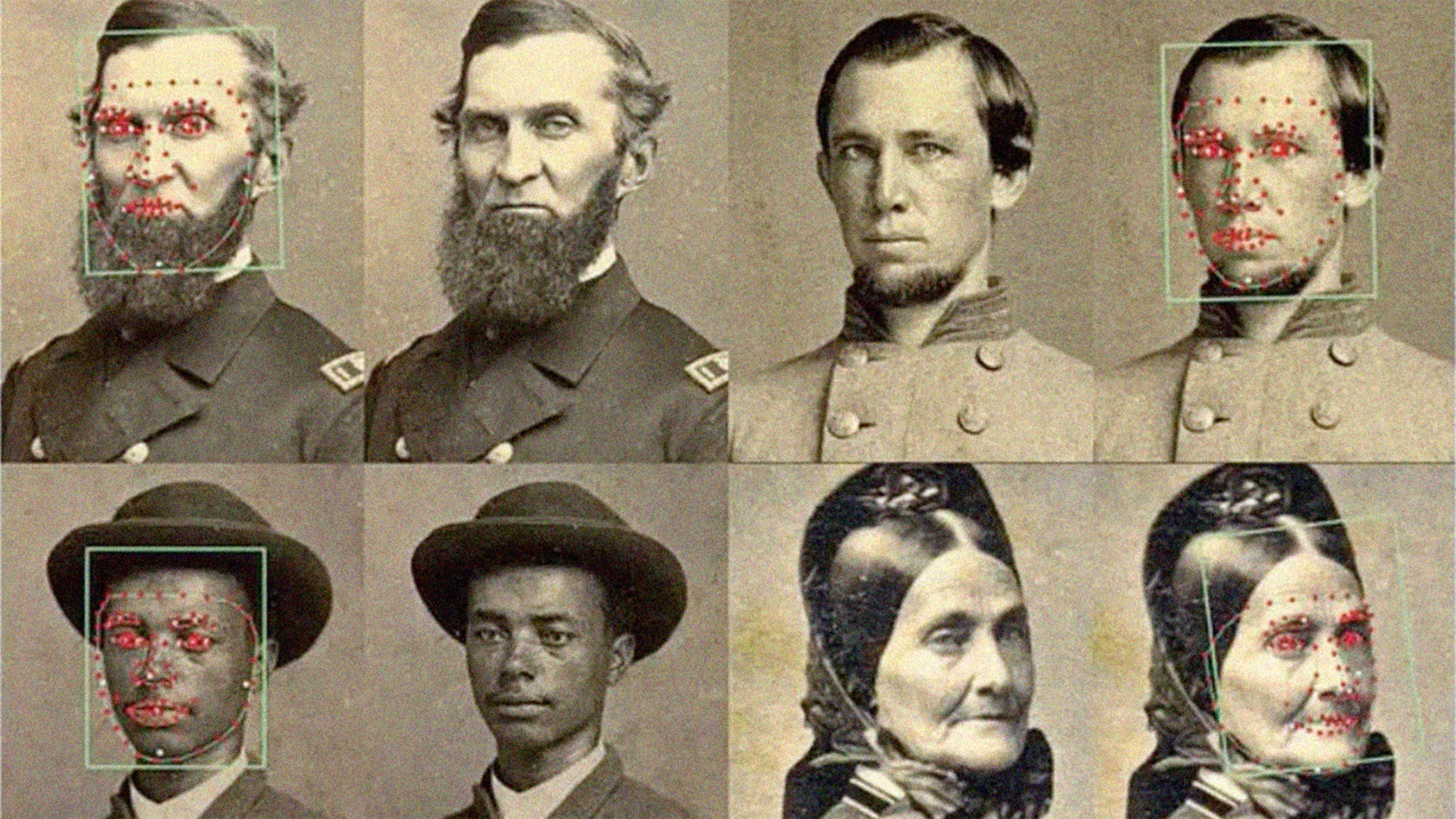Back in 2013, Kurt Luther spotted a photo of his great-great-great-uncle in a Civil War photo exhibit, a feeling he later described as like “closing a gap of 150 years.”
Luther, now the director of the Crowd Intelligence Lab at Virginia Tech, decided to use his expertise in crowdsourcing, human-computer interaction, social computing, and facial recognition to help others. He launched the Civil War Photo Sleuth (CWPS) Facebook page, where anyone with a Civil War-era photo could upload the image. Then, Luther’s facial recognition software would map their faces, while sleuths could mine the imagery for clues about rank or military unit from the soldier’s uniform or setting.
The work has expanded with the launch of the official CWPS website in August 2018 by Luther; his students at Virginia Tech; Ron Coddington, an editor at Military Images; and Paul Quigley, head of the Virginia Center for Civil War Studies. The site offers its online community of Civil War enthusiasts access to get in touch with their inner Sherlock Holmes and try to identify some of the subjects in their ever-growing database of photos using free software tools for image analysis—including what Luther describes as “state-of-the-art face recognition technology and a powerful search engine.”
While the program is not new, it’s always nice to hear about facial recognition software being used for something other than creepy, overreaching government surveillance.
Recognize your brand’s excellence by applying to this year’s Brands That Matter Awards before the early-rate deadline, May 3.
